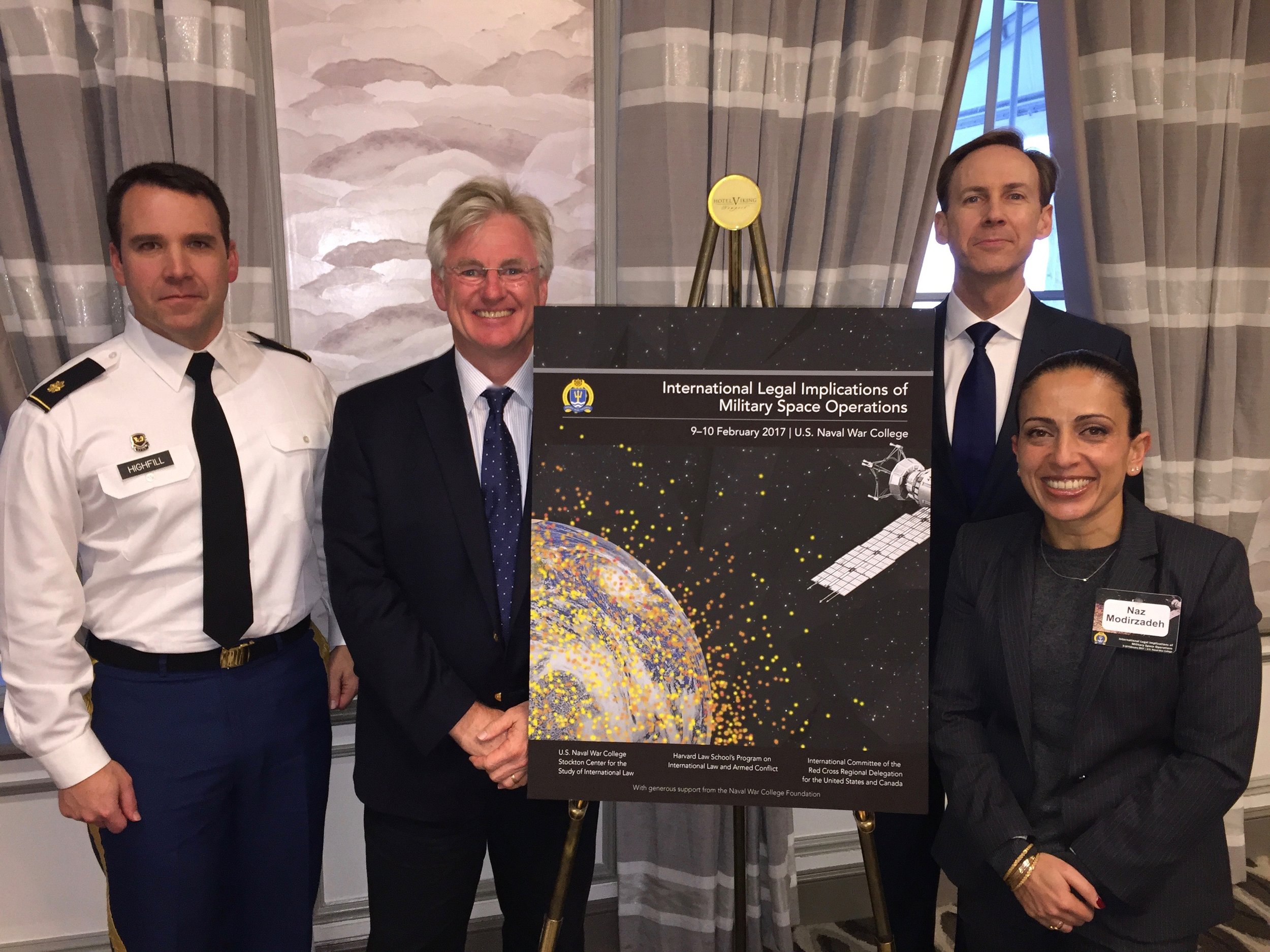On February 9–10, 2017, the Harvard Law School Program on International Law and Armed Conflict (HLS PILAC), the International Committee of the Red Cross Regional Delegation for the United States and Canada, and the Stockton Center for the Study of International Law, U.S. Naval War College, convened a workshop in Newport, Rhode Island titled “International Legal Implications of Military Space Operations.”
Image credit: link
Outer space is a domain of growing concern and interest. Governments and corporations increasingly rely on space-based technologies to support many aspects of daily life, and military operations increasingly depend on space-based assets. In light of these trajectories, it is more vital than ever to examine international legal implications of military space operations. To analyze a select array of enduring and emergent issues in this area, this workshop brought together a rich mix of scholars and practitioners in international law pertaining to armed conflict, in space law, and in relevant technologies. Topics covered included:
An overview of the outer-space environment;
Jus ad bellum concerning outer space;
Jus in bello concerning outer space;
Neutrality concerning outer space; and
The interplay between IHL and the outer-space legal regime.
Analyses by certain participants were subsequently published in International Law Studies:
Wolff Heintschel von Heinegg, “Neutrality and Outer Space” [link];
Bill Boothby, “Space Weapons and the Law” [link];
Dale Stephens, “The International Legal Implications of Military Space Operations: Examining the Interplay between International Humanitarian Law and the Outer Space Legal Regime” [link]; and
Kubo Mačák, “Silent War: Applicability of the Jus in Bello to Military Space Operations” [link].


